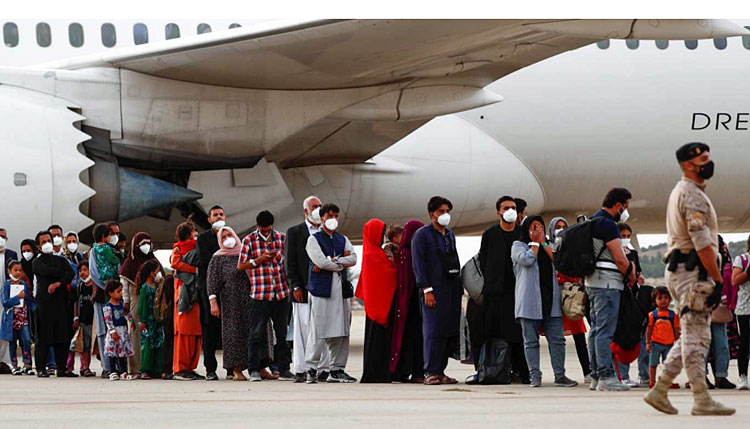Luis Ayllón
The Minister of Foreign Affairs, José Manuel Albares, assured yesterday in the Congress of Deputies that the Spanish Government is not considering recognizing the Taliban regime in Afghanistan.
Albares appeared before the Foreign Affairs Committee of the Lower House to give an account of the evacuation operation carried out by Spain in Afghanistan and to give an account of the general lines of his Ministry, which he joined on July 10.
His presence provoked the criticism of several opposition groups, such as the PP, Vox or Ciudadanos, who considered that the one who had to give an account of the Spanish action in the Afghanistan crisis was the President of the Government, Pedro Sánchez. The spokeswoman of the Popular Group, Valentina Martínez Ferro, described Albares as Sánchez’s “human shield”. The minister rejected these criticisms and replied on this point that Sanchez has been the one who has coordinated the whole operation developed by Spain.
Albares provided data on the operation, through which 2,206 people were evacuated by Spain, including Spaniards, embassy personnel, security forces, military and, above all, Afghan citizens and their families who collaborated with Spain, in addition to some people who were at risk due to their more public activity.
According to the minister, “Spain has risen to the occasion and has been an example of European values of solidarity, commitment and equality” and for many Afghans “Spain has become synonymous with hope”.
Albares said categorically that the Government “does not consider recognizing the regime imposed by force in Afghanistan”, but it is open to maintain “operational contacts” with the triple objective of being able to continue taking out of the country more citizens who collaborated with Spain, to deliver humanitarian aid to the population and to “guarantee the respect of Human Rights, in particular those of women and girls”.
The minister pointed out that, when the head of the Executive spoke of “mission accomplished”, he was referring to the return of the Spanish troops, after concluding the first phase of evacuation, but he said that now a second phase is opening, about which he avoided giving details for security reasons, because the will of the Government continues to be -he affirmed- “not to leave anyone behind”.
For the same security reasons, and despite the insistence of some spokesmen, Albares said that the names of the evacuees could not be provided, because they have family and friends still in Afghanistan.
For the same reason, he did not specify how many Spanish collaborators may still be in the Asian country, but he assured that Spain, as well as the EU and NATO are working to find ways for those people to leave. In this sense, he referred to a communiqué made public by the United States and signed by a hundred countries, among them Spain, on the possibilities of action beyond August 31. “That’s where we are,” he said.
Later, in a joint press conference with his Slovenian colleague, Anze Logar, he said that “guarantees have been received from the Taliban” that those who have travel authorization from those countries will be able to leave.
In Congress, the minister also explained, in response to questions from parliamentary groups about the risk posed by the massive entry of people from Afghanistan, that a “careful screening” was carried out and that each of the evacuees was subjected to an inspection, both in Kabul, and then in Dubai and also in Torrejón, about their identity, in coordination with the Ministry of the Interior and the National Intelligence Center (CNI) to prevent jihadists from entering.
Most of the parliamentary groups, as well as the minister, had words of praise for the armed forces, the police and the diplomats who participated in the evacuation operation.
Yesterday, the secretary general of the PP, Teodoro García Egea, accused Pedro Sánchez of trying to “put on the medals” that correspond to those who made the operation possible and urged him to apologize for having said in the past that the Ministry of Defense was surplus to requirements.







